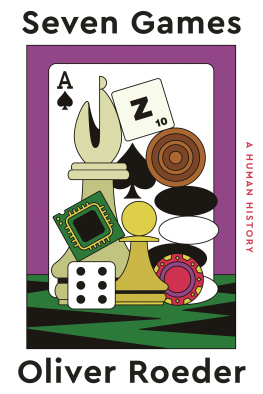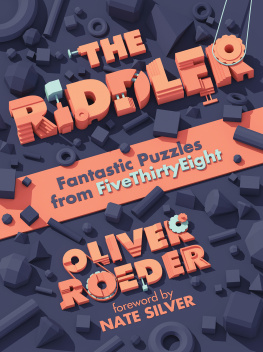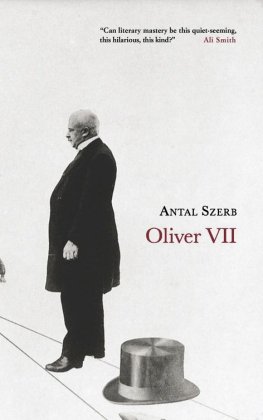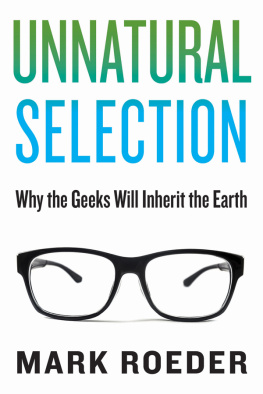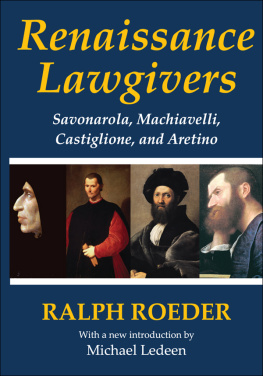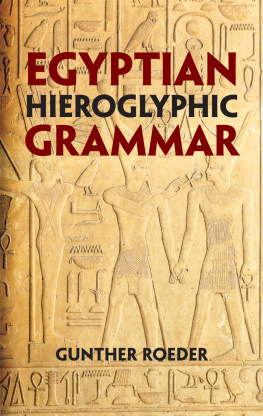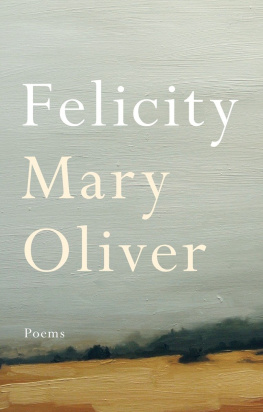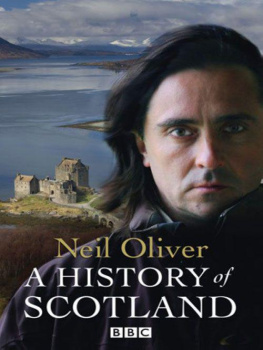Oliver Roeder - Seven Games : A Human History
Here you can read online Oliver Roeder - Seven Games : A Human History full text of the book (entire story) in english for free. Download pdf and epub, get meaning, cover and reviews about this ebook. year: 2021, publisher: W W Norton & Co Inc, genre: Detective and thriller. Description of the work, (preface) as well as reviews are available. Best literature library LitArk.com created for fans of good reading and offers a wide selection of genres:
Romance novel
Science fiction
Adventure
Detective
Science
History
Home and family
Prose
Art
Politics
Computer
Non-fiction
Religion
Business
Children
Humor
Choose a favorite category and find really read worthwhile books. Enjoy immersion in the world of imagination, feel the emotions of the characters or learn something new for yourself, make an fascinating discovery.
- Book:Seven Games : A Human History
- Author:
- Publisher:W W Norton & Co Inc
- Genre:
- Year:2021
- Rating:4 / 5
- Favourites:Add to favourites
- Your mark:
- 80
- 1
- 2
- 3
- 4
- 5
Seven Games : A Human History: summary, description and annotation
We offer to read an annotation, description, summary or preface (depends on what the author of the book "Seven Games : A Human History" wrote himself). If you haven't found the necessary information about the book — write in the comments, we will try to find it.
Seven Games : A Human History — read online for free the complete book (whole text) full work
Below is the text of the book, divided by pages. System saving the place of the last page read, allows you to conveniently read the book "Seven Games : A Human History" online for free, without having to search again every time where you left off. Put a bookmark, and you can go to the page where you finished reading at any time.
Font size:
Interval:
Bookmark:

ALSO BY OLIVER ROEDER
The Riddler: Fantastic Puzzles from FiveThirtyEight (editor)
SEVEN
GAMES
A
HUMAN
HISTORY
Oliver Roeder

In memory
Shirley Tabor, who taught me to play
19282019
God is dead! And we have killed him....
What festivals of atonement, what sacred games
shall we have to invent? Is not the greatness
of this deed too great for us?
FRIEDRICH NIETZSCHE,
THE PARABLE OF THE MADMAN
Im a machine and youre a machine
and we both think, dont we?
CLAUDE SHANNON,
WHEN ASKED WHETHER
MACHINES COULD THINK
CONTENTS
SEVEN
GAMES
Making music, were you? they cried.
Very well; now dance!
AESOP
A esop told a fable about two neighbors, an ant and a grasshopper. One warm summer day, the grasshopper emerges from his home and stretches his hind wings. Basking happily in the sun, he decides to spend the day at play. The grasshopper sets off merrily through the field and comes across the ant, who is scurrying back and forth, muttering to himself. The ant is hard at work stockpiling seeds for the winter.
Hey, ant, the grasshopper says. Come and play with me!
No, the ant mutters in solemn reply. There is work to be done. Winter is coming and I need food.
The grasshopper laughs. But you have plenty of food right now. Come on, lets play!
The ant refuses again and returns to his toil. The grasshopper continues on his way, alone but happy, inventing and perfecting his games in the meadow. Days pass, and then weeks and months, and eventually winter does come. The meadow freezes over and food becomes scarce. The grasshopper, seedless, goes hungry. The ant eats well from his stockpile. The end.
In this fable, the grasshopper is supposed to be a cautionary figure; the ant is the diligent hero.
The diligent hero of this book, however, is the grasshopperthe player of games.
The view we take in the following pages is that culture arises in the form of play, that it is played from the very beginning.... It is through this playing that society expresses its interpretation of life and the world.
JOHAN HUIZINGA, HOMO LUDENS
T here is an island in a mangrove swamp in southern Mexico made almost entirely out of clamshells. Five thousand years ago, before the rise of the great Mesoamerican civilizations of the Olmec, Aztec, and Maya, a group of people fished and gathered shellfish on this island. As the generations passed, countless clams were cooked and eaten. Their shells were discarded and crushed into the ground. Perhaps growing weary of walking on broken shells, the people began to build clay floors. They installed racks to dry their fish. More shells were crushed, and the island continued to grow. Eventually, the people built something else, toosomething that would puzzle the archaeologists who would discover the site millennia later. It was a simple thing: a curved pattern of small holes embedded in the clay floor above the shells.
Archaeologists tend to classify ancient discoveries into either the utilitarian (the clay floor, the drying racks) or the ritualistic (a temple, say). But the pattern on the floor stumped them, seeming, as it did, to belong to neither category. It was an ancient mystery, neither practical nor devout.
Or maybe, more profoundly, it was both.
It was a game, one of the earliest known. For the fisherfolk of Tlacuachero, game playing had apparently become one of the necessities of life, writes the anthropologist Barbara Voorhies, who has studied the site extensively.
Ancient Mesoamericans werent alone in their fondness for play. Archaeologists have pondered ancient findings from countless places. In a grave site in Egypt, for example, dating from the Neolithic period, before the pharaohs, diggers found a game called senet with pieces molded of dried mud. Theyve found games from ancient Persia, too, and ancient India, and ancient Chinawherever humans settled, games became necessities of life.
In each of these far-flung societies, games straddled the utilitarian and the ritualistic. Egyptian senet was played by both peasants and kings. In secular terms, it required strategic planning and a sophisticated understanding of probability, as players tossed casting sticks (essentially ancient dice) to race a set of pawns around a board. But senet also represented the connection between life and death, and the movement of ba a concept similar to the Western idea of a soul. The senet board effectively became the Netherworld, writes the archaeologist Peter Piccione.
The Royal Game of Ur was first played in ancient Mesopotamia. It is also a strategy game played with dice. It had at least one earthly attractiongamblingand a heavenly one as well: the spaces a players pieces landed on were thought to symbolize messages from the beyond, declarations of her fate. A recent archaeological study painstakingly traces the games spread across the Middle East. It has been found at hundreds of sites in many countries from across hundreds of years, essentially unchanged.
You know a version of this game today; its called backgammon. Another ancient game from Egypt, with versions later mentioned by Plato and Homer, became modern checkers. An ancient game from India, used for military training, became modern chess. One from China, used for similar purposes, became Go. Playing cards, and therefore games such as poker and bridge, can be traced back a thousand years, to the development of printing.
Games remain necessities of life today. For one thing, theyre fun. They activate and satisfy psychological desires. Pleasure derives from immersing oneself in games worlds, or in improving ones skills, or in benefiting from their systems of chance. The real world may from time to time offer us a chance to solve an elegant problem, and the satisfaction that comes with it, but games offer this chance constantly. While other art forms, like painting or film, might capture some visual aspect of the world, a game records a set of decisions and actions, packing them onto a small board, into a deck of cards, or onto a hard drive. In other words, games offer a space to enjoy agency . When playing games, we can take up goals temporarily, not because we actually care about achieving them in an enduring way, but because we want to have a certain kind of struggle, writes C. Thi Nguyen, a philosopher at the University of Utah. And we can do so for the sake of aesthetic experiences of strivingof our own gracefulness, of the delicious perfection of an intellectual epiphany, of the intensity of the struggle, or of the dramatic arc of the whole thing.
Games also offer simplified models of a dauntingly complicated world, with dynamics that we can grasp and master. Playing a gameentering what the cultural historian Johan Huizinga called the magic circle, or the space created when players sit down to playis adopting a unique way of seeing and acting in the world. We can take parts of ourselves into this magic circle, and we can take parts of the game back out with us. The border between the two is thin and often porous. Learning a games intricacies and playing that game with others binds us with other humans, shaping our culture and, indeed, our perspective on the real world. Any game can at any time wholly run away with the players, Huizinga writes. The contrast between play and seriousness is always fluid. The inferiority of play is continually being offset by the corresponding superiority of its seriousness. Play turns to seriousness and seriousness to play. Play may rise to heights of beauty and sublimity that leave seriousness far beneath.
Font size:
Interval:
Bookmark:
Similar books «Seven Games : A Human History»
Look at similar books to Seven Games : A Human History. We have selected literature similar in name and meaning in the hope of providing readers with more options to find new, interesting, not yet read works.
Discussion, reviews of the book Seven Games : A Human History and just readers' own opinions. Leave your comments, write what you think about the work, its meaning or the main characters. Specify what exactly you liked and what you didn't like, and why you think so.

